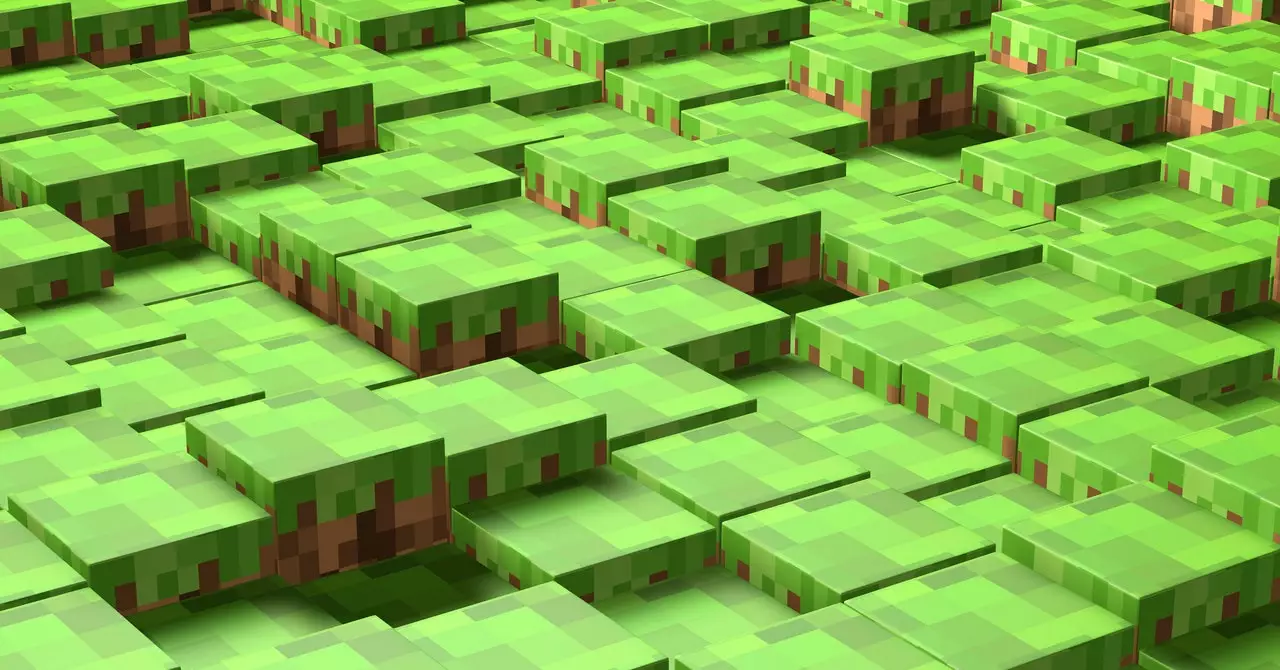Minecraft has captivated millions of gamers since its debut over a decade ago with its innovative gameplay mechanics and the endless opportunities for world creation. Yet, in a surprising twist, a new game called Oasis has emerged, demonstrating an experimental style that departs from conventional video game engineering. Developed by Decart, an Israeli startup specializing in artificial intelligence, in collaboration with Etched, a custom silicon design firm, Oasis propels the notion of creative gaming into uncharted territories. By leveraging AI to conceive each frame, this game is both intriguing and eccentric.
Oasis distinguishes itself through the use of a transformer AI model, which is fundamentally different from ordinary game engines or predefined algorithms. Rather than relying on a set of rules dictated by human developers, Oasis’s entire world is constructed through an AI that “dreams” of the next frame based upon user interaction and previous visuals. It operates on the principle of feeding on an open-source Minecraft dataset from OpenAI, enabling it to generate uniquely bizarre landscapes that echo the beloved classic while providing its own idiosyncratic flair.
A notable aspect of this AI-backed creation is the interactive element that empowers players to influence the game’s narrative through their actions. Unlike traditional gaming, where players work within a structured universe, Oasis thrives on fluidity, morphing the in-game space based on the input of the player as well as the AI’s perpetual reworking of the environment. This aspect invites players to engage in a deeply exploratory experience, albeit with varying degrees of success.
One of the most fascinating features of Oasis is how it contributes to a sense of unpredictability. Players often encounter elements that challenge their expectations—misshapen creatures and transient pathways that appear and disappear. This uncanny atmosphere nurtures an almost dreamlike experience akin to the cinematic layers of “Inception.” The reality within Oasis is never entirely stable; players can witness swift transformations in the landscape merely by looking away and redirecting their focus. Indeed, this surreal quality may become one of the primary appeals of Oasis, drawing in users who thrive on novelty and unpredictability.
Additionally, Oasis allows for a highly personalized touch; players can upload their own images to inspire the AI’s creativity. A user who inputs a photo of their pet might watch as the game interprets that image, transforming it into a dreamlike blocky rendition of their cat, showcasing the game’s potential to extend creativity beyond its initial parameters.
In a world where online interactions often lead to phenomena going viral, Oasis has already gained traction among participants eager to challenge its AI and uncover its hidden potential. Players experiment with teleportation techniques within Oasis, aiming for otherworldly vistas that bear resemblances to iconic Minecraft locations. This virality stems from the sheer curiosity the game incites, prompting those who dive into it to share their exploits with others.
However, as much as Oasis has captured attention, it is crucial to critique the shortcomings inherent to such an unpredictable system. Experts like Julian Togelius from New York University highlight the inconsistencies that plague the experience, arguing that while the idea behind generative AI is groundbreaking, it still has a long way to go before it could provide a comprehensive gaming solution.
Despite the fascinating technology behind Oasis, it currently exists in a space that may leave many players unsatisfied. Game designer Frank Lantz notes that the project finds itself in an uncanny valley, straddling the line between intriguing and confounding. While Oasis may not yet provide the gratifying experience many expect from a video game, it holds significant potential for innovation in the gaming realm.
Oasis serves as an experimental playground where the boundaries of gaming are tested using generative AI. The blend of unpredictability, personal engagement, and visual creativity sets it apart within the gaming landscape while raising important questions about the future of AI technology in this medium. As the gaming community continues to explore these avenues, it remains to be seen whether the true promise of homespun AI creations like Oasis can evolve into a beloved classic in their own right.


Leave a Reply
You must be logged in to post a comment.